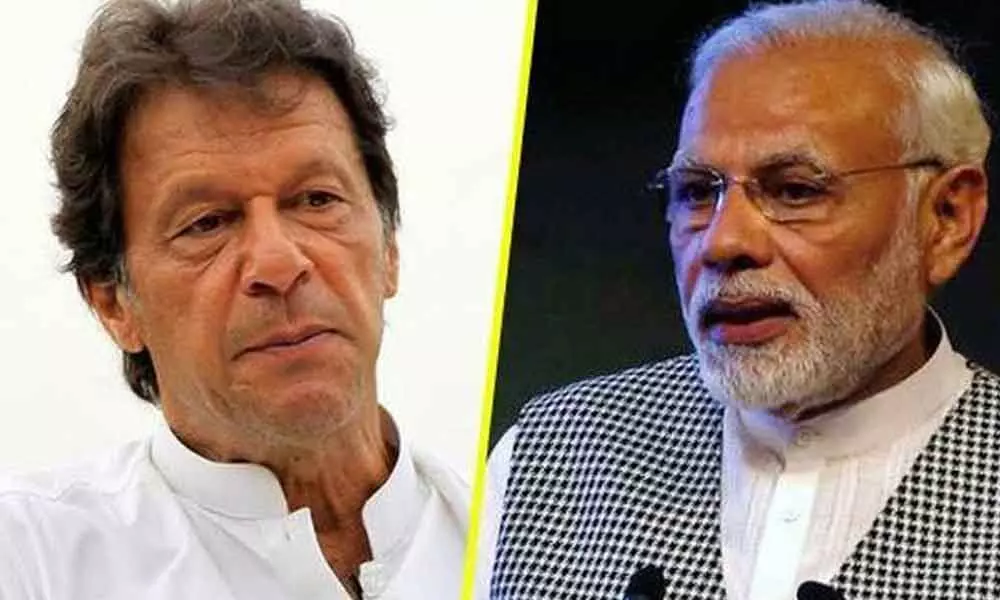Indo-Pak 'ceasefire agreement' will achieve nothing

The tactical step of a limited agreement that seeks only to calm the borders and lessen shelling and artillery exchanges has been imbued with such lofty goals that the move is likely to get crushed under the weight of expectations
For an 'agreement' that sounds off on almost everything — from timing, drafting, aftertaste to its promise — the current India-Pakistan 'ceasefire' has triggered inexplicable enthusiasm in certain quarters. We are told it "would be pathbreaking," that it will "reduce violence and allow both countries to tell the international community that they are taking steps to stabilize Kashmir." One report speculated that New Delhi may even let the SAARC meet happen in Islamabad. Good thing that no one has claimed yet that it will reverse global warming.
The tactical step of a limited agreement that seeks only to calm the borders and lessen shelling and artillery exchanges has been imbued with such lofty goals that the move is likely to get crushed under the weight of expectations. Those with even a shallow familiarity with Pakistan's perfidious behaviour have seen this sordid drama played out before, but the flying of peace kite with a terror-sponsoring nation whose raison d'etre is the endless fight against Hindustan is apparently an irresistible urge for some. It also sounds suitably 'progressive' to call for peace with a nation that not only uses terror as state policy but also uses every dirty trick — such as an attempted revival of the Khalistani movement — to keep India destablised.
Far too much is being read into "peace overtures" by Pakistan. The comments presented as "evidence" of Pakistan's "softening tone" are more a projection of media's expectations than reality. Pakistan army chief Gen Qamar Bajwa's "hand of peace" speech early in February says nothing to indicate that there has been a shift in Pakistan's stance on Kashmir. In fact, Bajwa stressed in that very address that "Pakistan and India must also resolve the longstanding issue of Jammu and Kashmir in a dignified and peaceful manner as per the aspirations of the people of Jammu and Kashmir and bring this human tragedy to its logical conclusion." A slightly more civil way of saying the same thing that Pakistan has been saying since inception.
We are so used to vitriolic rhetoric from Pakistan that even a slight change in tone turns Indian media into excitable kids at a candy store. Just three days after Bajwa's speech, that media in India interpreted as "change of heart", Pakistan prime minister went to Muzaffarabad and unleashed his schoolboy fantasy.
"I want to tell the Kashmiris on both sides of the divide that after you will decide in favour of Pakistan [in a plebiscite], you will be given a right by Pakistan to choose whether you want to remain as a part of Pakistan or as an independent nation… This will be your right," thundered Khan. This was widely reported in Pakistani media but peaceniks in India never got the memo.
In fact, just to make it official that he has nothing to do with any peace deals with India — lest Rawalpindi later hangs him with that rope — Khan put the onus on peace on India with some tough-worded tweets where he made it clear that "India must take necessary steps to meet the long-standing demand & right of the Kashmiri people to self determination acc to UNSC resolutions,"
For good measure, he also threw in a reference to Wing Commander Abhinandan Varthaman. Meanwhile, Khan's pointsperson Moeed Yusuf, Pakistan's NSA equivalent, was found furiously denying any "back channel" diplomacy with India on the agreement.
It is a strange agreement that no one in Pakistan wants to take credit for. Also worth noting is that when the two nations were parleying behind the scenes, they were at loggerheads at the UNHRC in Geneva on 24 February, a few hours before the "ceasefire agreement" was announced.
Lt Gen (retd) Syed Ata Hasnain, former commander of the Srinagar-based 15 Corps, in his column for The Asian Age writes, "this appears to be Pakistan's way of trying to prove the initiative didn't come from it but rather from India. In other words, that Pakistan had minimal compulsion to call for a ceasefire and attaches little importance to it. That is usually a ploy by a country known to resort to violations of international norms."
Heaven help us if unbridled optimism around a "reset" of ties between India and Pakistan rests on Bajwa's change in tone, Moeed Yusuf's "desire for conversation" expressed during an interview with an Indian media outlet, New Delhi's permission for overflight to Khan's airplane and a badly drafted 'joint statement' that recommits to 2003 ceasefire agreement.
The joint statement, released in India by the defence ministry, states that "the two DGsMO agreed to address each other's core issues and concerns which have the propensity to disturb peace and lead to violence. Both sides agreed for strict observance of all agreements, understandings and cease firing along the Line of Control and all other sectors with effect from midnight 24/25 Feb 2021." It is strange because neither India — that considers cross-border terrorism as a core issue — nor Pakistan, that still hopes to wrest Kashmir from India, have indicated that these "core issues" are up for negotiation.
As far as the prospects for peace is concerned, one expects the ceasefire to achieve little beyond a temporary breather. The 2003 ceasefire pact remained technically in place during 26/11 Mumbai terror attacks in 2008, India's 2016 cross-border surgical strike in retaliation for the terrorist attack in Uri, or the Balakot airstrikes carried out by the Narendra Modi government in 2019 after a terrorist attack by Pakistan-backed operatives killed 40 Indian soldiers in Kashmir.
Nor has the security situation in the Valley or across the border has shown dramatic improvement. The Hindu reported on 19 February that three policemen and three terrorists were killed in three separate incidents in the Kashmir Valley on Friday, and one of those terrorists was a Lashkar-e-Taiba operative.
ORF senior fellow Sushant Sareen observes that Indian security forces are gearing up for a 'hot summer' as the snow melts. "Pakistanis have been adopting and adapting terror tactics from other theatres – drones to drop weapons not just in J&K but also in Punjab, tunnels to infiltrate terrorists, and introducing 'sticky bombs' (used to devastating effect in Afghanistan in recent weeks). Simply put, the terror factory in Pakistan is back in business. This is hardly conducive to any kind of move towards putting the bilateral relationship back on track."Amid this context, the exhilaration over a 'ceasefire agreement' between two DGsMO defies rational explanation.
(This article was
first published at http://www.firstpost.com. Reprinted with their
permission)




